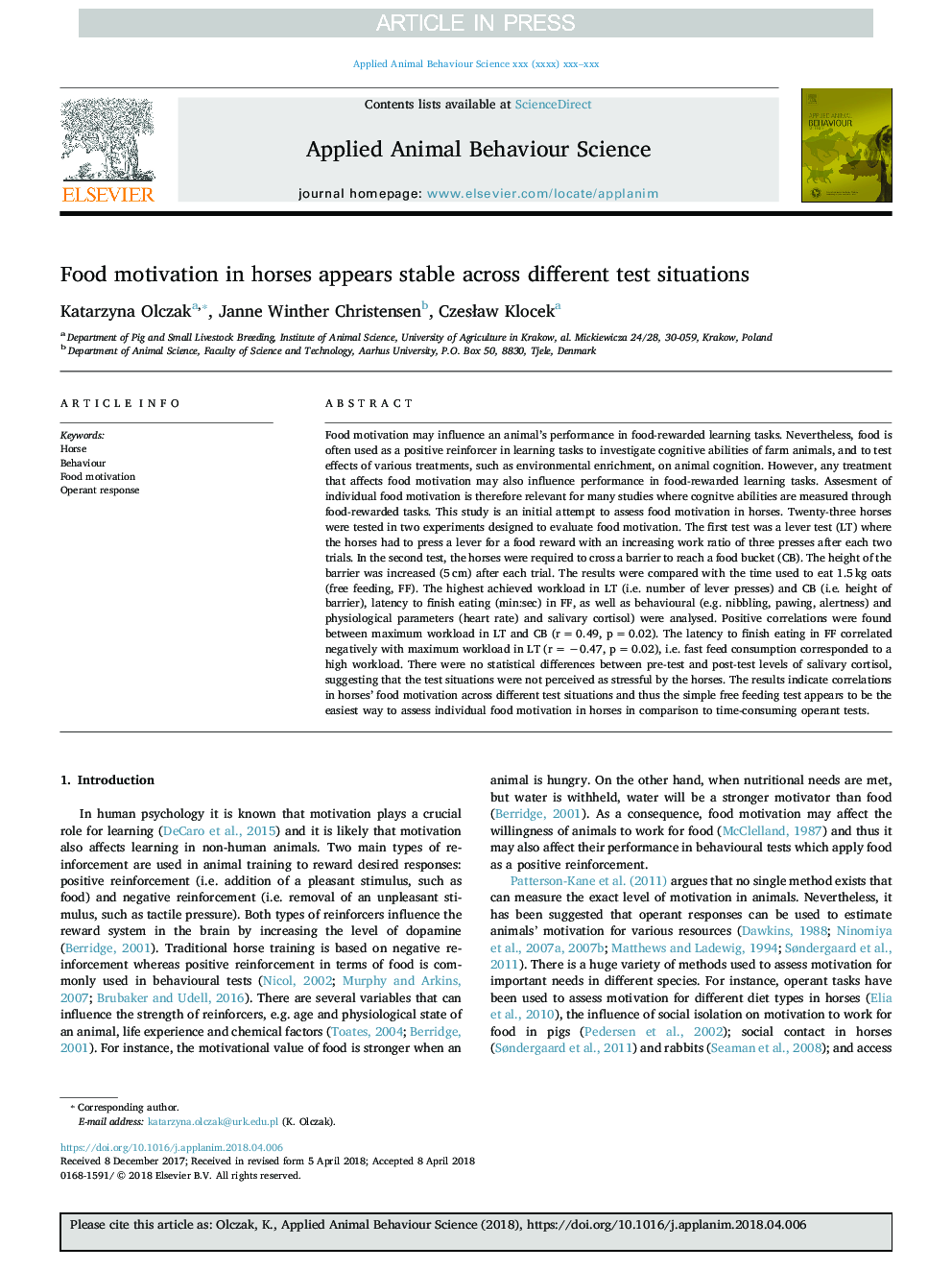| کد مقاله | کد نشریه | سال انتشار | مقاله انگلیسی | نسخه تمام متن |
|---|---|---|---|---|
| 8882754 | 1625302 | 2018 | 6 صفحه PDF | دانلود رایگان |
عنوان انگلیسی مقاله ISI
Food motivation in horses appears stable across different test situations
ترجمه فارسی عنوان
انگیزه غذایی در اسب ها در شرایط مختلف آزمایش ظاهری پایدار
دانلود مقاله + سفارش ترجمه
دانلود مقاله ISI انگلیسی
رایگان برای ایرانیان
کلمات کلیدی
اسب، رفتار - اخلاق، انگیزه غذایی، پاسخ عملی
موضوعات مرتبط
علوم زیستی و بیوفناوری
علوم کشاورزی و بیولوژیک
علوم دامی و جانورشناسی
چکیده انگلیسی
Food motivation may influence an animal's performance in food-rewarded learning tasks. Nevertheless, food is often used as a positive reinforcer in learning tasks to investigate cognitive abilities of farm animals, and to test effects of various treatments, such as environmental enrichment, on animal cognition. However, any treatment that affects food motivation may also influence performance in food-rewarded learning tasks. Assesment of individual food motivation is therefore relevant for many studies where cognitve abilities are measured through food-rewarded tasks. This study is an initial attempt to assess food motivation in horses. Twenty-three horses were tested in two experiments designed to evaluate food motivation. The first test was a lever test (LT) where the horses had to press a lever for a food reward with an increasing work ratio of three presses after each two trials. In the second test, the horses were required to cross a barrier to reach a food bucket (CB). The height of the barrier was increased (5â¯cm) after each trial. The results were compared with the time used to eat 1.5â¯kg oats (free feeding, FF). The highest achieved workload in LT (i.e. number of lever presses) and CB (i.e. height of barrier), latency to finish eating (min:sec) in FF, as well as behavioural (e.g. nibbling, pawing, alertness) and physiological parameters (heart rate) and salivary cortisol) were analysed. Positive correlations were found between maximum workload in LT and CB (râ¯=â¯0.49, pâ¯=â¯0.02). The latency to finish eating in FF correlated negatively with maximum workload in LT (râ¯=â¯â0.47, pâ¯=â¯0.02), i.e. fast feed consumption corresponded to a high workload. There were no statistical differences between pre-test and post-test levels of salivary cortisol, suggesting that the test situations were not perceived as stressful by the horses. The results indicate correlations in horses' food motivation across different test situations and thus the simple free feeding test appears to be the easiest way to assess individual food motivation in horses in comparison to time-consuming operant tests.
ناشر
Database: Elsevier - ScienceDirect (ساینس دایرکت)
Journal: Applied Animal Behaviour Science - Volume 204, July 2018, Pages 60-65
Journal: Applied Animal Behaviour Science - Volume 204, July 2018, Pages 60-65
نویسندگان
Katarzyna Olczak, Janne Winther Christensen, CzesÅaw Klocek,
